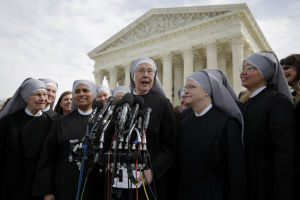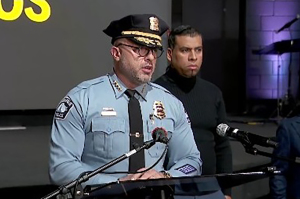Soldiers OK With Open Military, Suggests Leaked Survey
Many soldiers would not object to serving and living along openly homosexual troops if "Don't Ask Don't Tell" were to be overturned, according to the latest leak from a yet-to-be-released survey of military personnel.
Those close to the Pentagon told the Washington Post that Department of Defense reports due to President Barack Obama and Congress were likely to show a positive reaction to the integration of openly gay and lesbian soldiers in the military.
On many of the questions, most soldiers said either they would not be bothered by the scenario or they would be slightly bothered by the scenario but would address the issue directly with that person rather than a superior. The least selected answers were "slightly bothered, and would contact a superior," and "extremely bothered, would contact a superior."
When asked about the survey results, the DOD declined to comment, saying only that the full report would be available December 1.
In July, DOD officials leaked a copy of the survey questions to the Washington Post. The DOD surveys questioned active-duty and reserve soldiers on whether they would be comfortable sharing rooms and showers with openly homosexual soldiers. It also asked how gay service members would react to same-sex couples living on base.
Critics have voiced concerns about the style of questioning. Elaine Donnelly, the executive director for the Center of Military Readiness, said that the questions' tone imply that DADT has already been repealed.
"The survey instruments that were put out there by the Department of Defense did not even ask the question 'Do you favor retaining or repealing the law?' That is the primary flaw with the survey," she noted.
Donnelly said if the question was asked, it would find that issues of sexuality and privacy do matter.
"The military is different than the civilian world," she asserted. Donnelly also highlighted how civilians very rarely have jobs were there are little to no privacy.
"Military people deploy for many months at a time, far from home, [and] they do not get to choose who they live with. To pretend that sexuality does not matter is indeed tantamount to saying 'OK, from hence forth military women are going to have to share their private quarters with men.' That would really be extremely controversial," said Donnelly, whose organization works to promote "sound military personnel policies in the armed forces,"
"Human sexuality does matter, feelings matter, and the desire for sexual privacy and modesty are important," she added. "If we pretend that doesn't matter, we are causing an awful lot of turmoil that is not needed."
Former Marine Alan Ardelean similarly voiced his displeasure in a DADT letter to the Georgetown University's Hoya newspaper saying that a sexually open military would lead to a lot of questions and ambiguity.
"If gay or lesbian U.S. service members were allowed to serve openly, many problems would arise. Where would you house a [Lesbian, Gay, bisexual, transgender and questioning] military community? Would they have their own barracks? Would these be located next to 'non-gay' barracks?" he posed.
Aedelean said he is uncomfortable with the idea and guesses others' discomfort would create a divide in what should be a cohesive unit.
"Openly gay service members would foster segregation because they would only create a barrier between heterosexual and homosexual troops," he asserted.
Bruce Hausknecht, judicial analyst of Focus on the Family's Citizen Link, further fears that a federal ruling in favor of repealing DADT will hamper military chaplains and Christian soldiers from expressing their faith.
"Any kind of Don't Ask Don't Tell repeal puts the religious liberties of Chaplains at risk," he said.
In an openly gay and lesbian military, the judicial analyst said chaplains may be forced to adopt a condoning stance to homosexuality or face discipline.
Similarly, Hausknecht said of the soldiers, "If they talk about their faith with other soldiers, will those soldiers be disciplined?"
Donnelly said they will.
"Anybody who disagrees, starting with chaplains, would be subject to career penalties," she said. These penalties, she added, may mean that dissenting chaplains and soldiers would be over looked for promotions and, over time, forced out.
Donnelly said she fears that a military where sexual privacy and moral beliefs are compromised will lead to declines in recruitment.
"We would lose out on some really good people, both voluntarily and involuntarily," she argued.
Ardelean, meanwhile, wrote that the problem with the debate lies with the people who are driving the issue. These people, he said, are pro-gay rights activists, not servicemen and women.
"Civilians need to understand that the U.S. military is different. When one is first enlisted or commissioned in the U.S. military, one waives his or her inalienable rights. In return, one is granted the right to lawfully take a human life upon command. This is one of the most essential characteristics of the military."



























